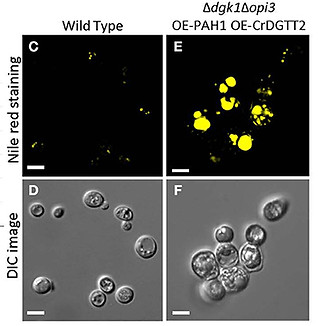PLANT LIPID RESEARCH TEAM

Primary Areas of Interest
Think with lipids whenever an unresolved biological problem pops up

Single-cell lipid metabolic flow at spatial resolution
Lipids are synthesized mainly in the ER and plastids, but where does it take place within the organelle? We focus on the organelle contact sites as an important site in regulating subcellular lipid metabolism. This project aims to unravel the metabolic “hot spot” at subcellular resolution.

Lipid oscillation: a rhythmic periodical change of temporal membrane lipid profiles
Lipids oscillates their molecular profiles in response to external light/dark conditions or internal circadian clock. What is the biological significance underlying the lipid oscillation?
METABOLISM
_JPG.jpg)
Lipid-mediated regulatory mechanism of organogenesis
Lipids contribute to the beauty of plant body. This is because of their tight association with the regulatory protein modules governing plant developmental control through lipid-protein interaction. Our collection of odd-shaped lipid mutants showcases their key role in maintaining a shapely form of plant body.

Membrane lipid remodeling: an adaptive mechanism to changing environment
Lipids rapidly alter the composition at cellular membranes upon environmental change. For example, when phosphorus is starved, plants replaces phospholipids with non-phosphorus glycolipids in the cellular membranes to save the phosphorus while maintaining the membrane integrity. We aim to understand how membrane lipid remodeling allows plants to adapt to changing environment for sustainable growth.
FUNCTIONS

Discovering plant-specific new metabolic pathways
Since plants do not eat, they use a unique metabolic pathway less dependent on the diet intake. Discovering such a new pathway will allow us to investigate plant-specific metabolism with its physiological significance, and to propose a novel strategy to the metabolic engineering.

Gene hunting from nature towards robust oil engineering
Algae are good at producing oil, but why? We found some algal lipid biosynthesis gene works robustly in a heterologous system. We are hunting useful genes from oleaginous plant and algal species to achieve a robust oil metabolic engineering in a synthetic platform.